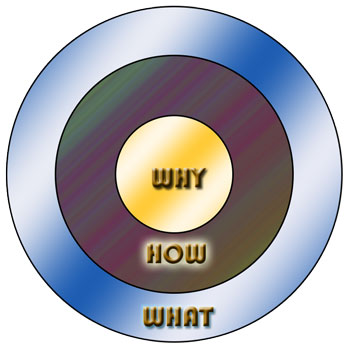2021
How you should be sending every email in your business
We all send out 100’s of emails from our business every
week if not every day. Each one of these emails is a touch point with
your market be it direct or indirect.&...
 Why did we stop asking why?
Why did we stop asking why? As annoying as it may sometimes get, one of the great delights as parents is seeing the development of our children that the earliest of ages continuously ask "Why". Why is that, Why should I, Why is the sky blue?
It is a natural learning and development process which we, as parents, see their hunger for knowledge with answers . This is how we learn and understand. This enables them to acquire knowledge in order to make better decisions.
Yet, as adults, we stop asking why. Social conditioning gives rise to many of our most basic instincts being reconditioned to suit the normal. We are conditioned to believe that asking why is being obtrusive, nosy or interfering. In many regards is even considered as being rude.
So where am I going with this? Why am I questioning what is generally accepted as being polite in not asking people why?
Let us take a typical business seminar, conference or just a network event. When you meet someone you don't know you generally introduce yourself and try to establish some rapport with that other person. Typically, we ask them "what do you do". And what is the general response?
In most cases when you ask what people do you will get a fairly stock standard response, more than likely, a description of general activities that they perform. In other words exactly what they do. Accounts will tell you about the bookkeeping, accounting or tax services; lawyers will to do about the legal services; builders will tell you about the types of houses they built... Not exactly inspiring no matter how accurate it may be.
How powerfully insightful would be if instead, you then follow this up with asking them "Why" they established their business or "Why" they chose the job they do?
What this does is take the other person to a higher level of conscience and gives you real insight into the person on the nature of their business. You are now gaining insight into their true purpose.
Now don't be surprised if they look at you blankly for a moment or two before telling you they don't really know all recall. This is not uncommon. Studies of great businesses have shown that these businesses, under the stewardship of strong leaders, have had a very clear understanding of Why they exist, Why they do what they do.
Success of any organisation is directly attributed to the strength of its leaders. If you look back through history you will find that all great leaders possess an overwhelming sense of purpose - they understood why they did what they did. They also communicated this throughout their organisations. To inspire others you need to know why you exist and to then communicate this to others in a way that they understand and believe.
Simon Sinek, the author of "Start With Why: How Great Leaders Inspire Everyone To Take Action", popularise the concept of Why through his "Golden Circle" where he espouses the theory of the 3 circles of What, How and Why. In his book he talks to the WHY as being the purpose, cause or belief that drives us all.
How many of you as leaders in your own organisation or as business owners live the "Why" factor? More importantly though, how well do those reporting to you or working for you, know it and understand why your business exists.
Articulating the “Why” factor to your business can give you a distinct advantage in your own business brand. It is your point of distinction because of his personal, it is inspiring and it is honest.
Check in with yourself on how well you live the why in your business. Is your business reflecting this in all it does?
Why not do this straight away and see how you feel at the end of the exercise!
Consider this. People don't buy from you because of what you do but more because of why you do it. For a far better explanation watch this video of Simon Sinek speaking on this very subject.
 https://www.topleftdesigns.com.au/my-assets/img/blogs/what-how-why.jpg
300 300
Written by: Greg Tomkins
https://www.topleftdesigns.com.au/my-assets/img/blogs/what-how-why.jpg
300 300
Written by: Greg Tomkins
 on
on
 https://www.topleftdesigns.com.au/_Assets/images/topleftdesigns_logo_h.jpg
379 118
https://www.topleftdesigns.com.au/_Assets/images/topleftdesigns_logo_h.jpg
379 118